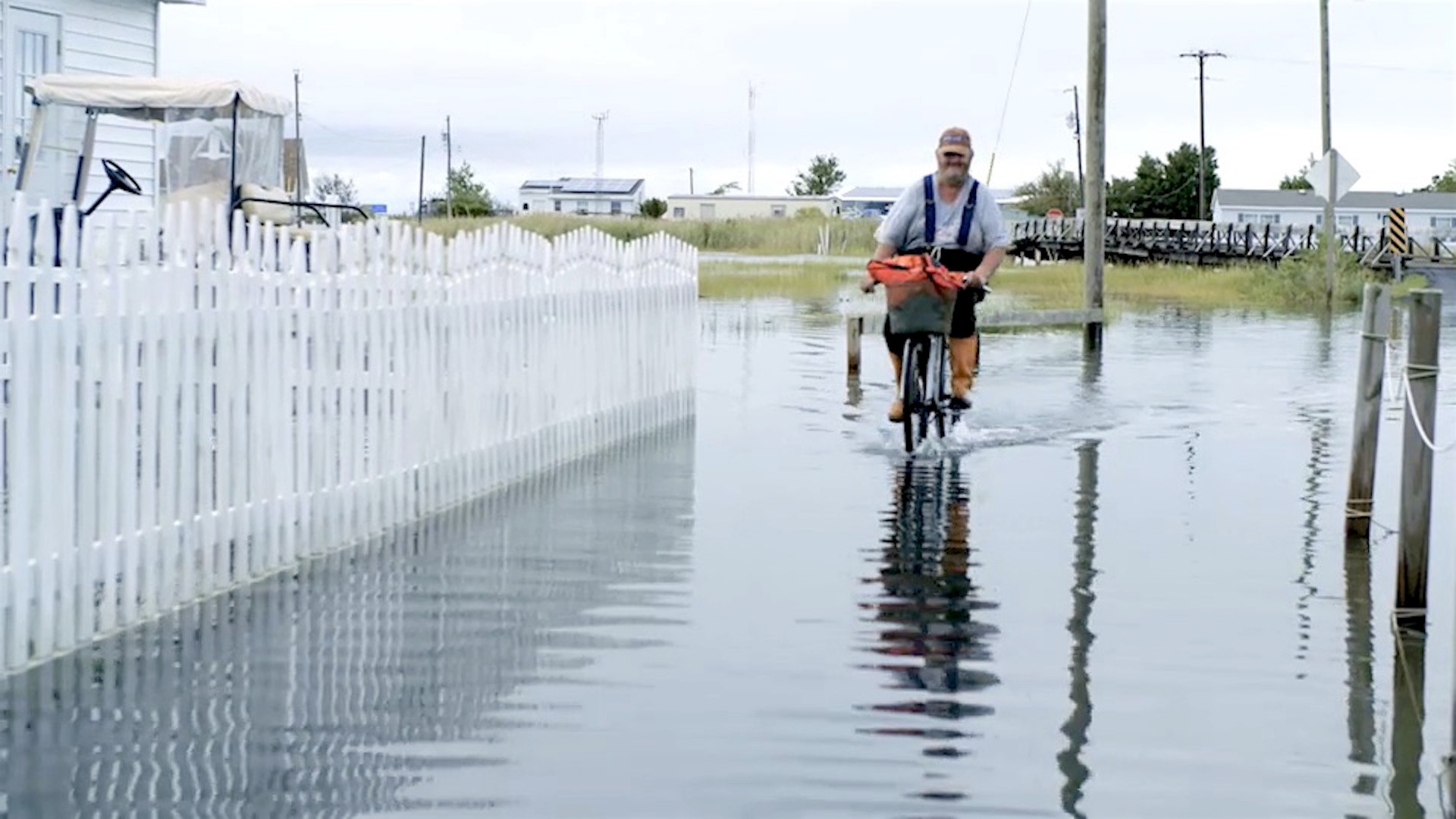Building a libertarian, techno-utopian paradise in a city that floats on the ocean sounds like the stuff of science fiction or a joke on HBO’s “Silicon Valley.“ And it is both of those things, but it’s also closer to reality than ever before.The idea is being promoted by a group of libertarian idealists who say they can solve society’s ills by moving into communities on the open ocean. There, they say, they’ll be insulated from things like sea-level change and lack of innovation in the government — two of the biggest issues facing mankind in the 21st century, according to Joe Quirk, president of the Seasteading Institute.“Seasteading solves both,” Quirk told VICE News. “In my opinion, it sure beats going to Mars.”The Seasteading Institute came to an agreement earlier this year with French Polynesia to build a prototype “seastead” in a protected lagoon, which they hope will prove the viability of their idea. They expect to have their prototype, which features an underwater restaurant, up and running by 2020.The project is about more than fancy floating restaurants, though — it’s also about building a utopia.It’s partially inspired by Burning Man, where Quirk met Patri Friedman, a seasteading pioneer and grandson of free-market economist Milton Friedman. The pair later wrote a manifesto of sorts for their website, where the “aquapreneurs” describe how seasteads will solve eight big problems they categorize as the “Eight Great Moral Imperatives” of seasteading. (The book that Friedman and Quirk co-wrote, called “Seasteading,” was, according to their website, a best-seller on Amazon in the category of marine engineering.)Underpinning the whole project is an assumption that the seas will rise due to climate change, leaving nowhere to live but the ocean. They think that with floating cities they can:The eighth “moral imperative” is what they call “The Velella Mariculture Research Project,” a floating pen used to sustainably grow fish. It will, they hope, “feed 9 billion people with great-tasting sashimi,” while leaving no carbon footprint.The idea has definitely gained traction among the super-rich. Peter Thiel was a founding investor, putting down a $1.7 million in seed funding for Friedman to found the Seasteading Institute. (Thiel resigned from the board in 2011, according to Business Insider, and Quirk says he’s not involved in the island in French Polynesia at this point, though two employees of the Thiel Foundation are on the Seasteading Institute’s board.) They hope to fund the project through an initial coin offering, a new means of crowdfunding that involves the creation of a new digital currency, where there are a finite number of the currency, and the whole thing operates outside of any traditional financial or regulatory system.The seasteaders, says Quirk, are “committed to decentralizing not only governance but also finance.”“If societies floated and they could be disassembled and moved around you’d have variation and selection in governance itself,” Quirk said. “So governance as a technology could advance at a speed akin to the phones we’re talking about right now.”“I think of seasteads as being like the iPhone that floats. And you can bring your governance app, and choose how to structure society.”
They hope to fund the project through an initial coin offering, a new means of crowdfunding that involves the creation of a new digital currency, where there are a finite number of the currency, and the whole thing operates outside of any traditional financial or regulatory system.The seasteaders, says Quirk, are “committed to decentralizing not only governance but also finance.”“If societies floated and they could be disassembled and moved around you’d have variation and selection in governance itself,” Quirk said. “So governance as a technology could advance at a speed akin to the phones we’re talking about right now.”“I think of seasteads as being like the iPhone that floats. And you can bring your governance app, and choose how to structure society.”
Advertisement
- “Enrich the poor,” because small island nations, they reason, tend to be wealthier and able to restructure government when they become independent.
- “Cure the sick,” because while government bureaucracy has impeded progress in medical research, it won’t on their floating libertarian paradises.
- “Feed the hungry,” by harvesting the algae that will bloom wildly as the world gets warmer and carbon is absorbed in the ocean.
- “Clean the atmosphere,” by growing new carbon-absorbing algae, which will be a new solar-powered source of energy in the new “blue economy.”
- “Allow people to live in balance with nature,” through cities built with technology inspired by plants that use water as an energy source.
- “Power the world” through “ocean-thermal energy conversion,” a relatively unknown mechanism for producing energy using the difference in temperature between water near the ocean floor and on the surface.
- “Stop fighting,” by liberating humanity from the “monopoly of government” and allowing people to choose for themselves what type of governance suits them among a bunch of seasteads with different systems.
Advertisement
